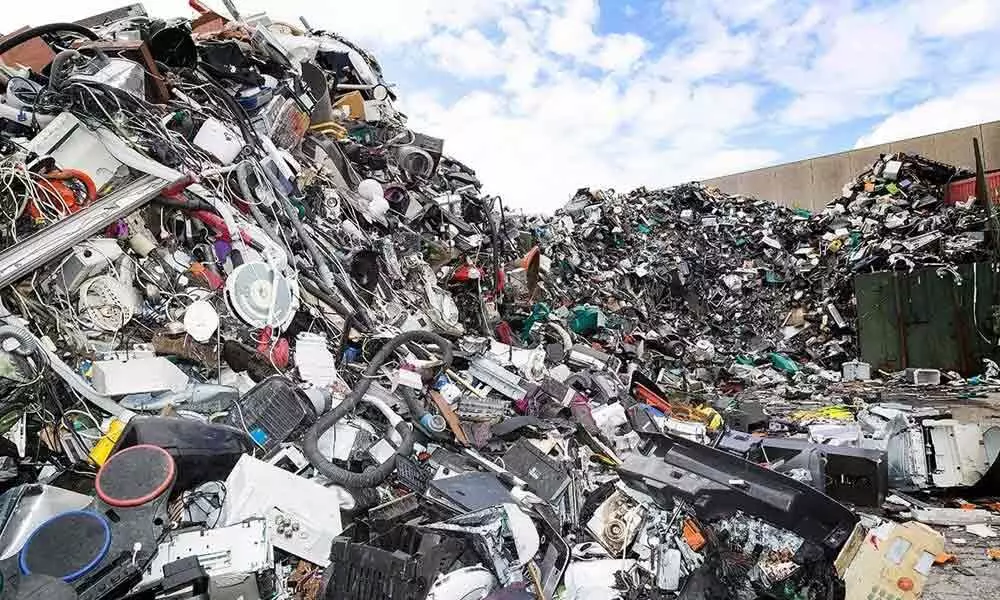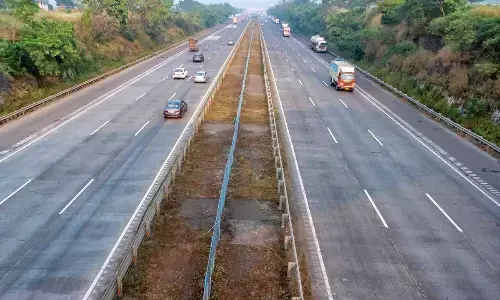Hyderabad's e-waste to double in next 5 years

Hyderabad’s e-waste to double in next 5 years
- EPTRI study says from the present 40K tonnes, thecity’s e-waste is likely to increase to 1L tonnes in next five years
- It suggests PCB increase the number of e-waste collection points in city
Hyderabad: The electronic waste in Greater Hyderabad limits continues to increase every year. A recent study by Environmental Protection Training Research Institute (EPTRI), Hyderabad showed that the annual e-waste of Greater Hyderabad, which is currently 40,000 tonnes per year, is likely to reach 1 lakh tonnes in the next five years. The EPTRI, while sounding alarm, has stated that if the e-waste was not collected and disposed of properly, it could prove detrimental to the health of citizens and also to the environment.
Although the city's e-waste is scientifically treated, the collection of e-waste is not satisfactory as many continue to dump e-waste along with household house waste, which goes straight into the landfills.
While e-waste centres are already in operation in Kukatpally, Khairatabad, Hafeezpet, Jubilee Hills and Secunderabad, the EPTRI has suggested the State Pollution Control Board (PCB) to increase the number of collection centres in the city and also to organise programmes to educate people on e-waste disposal.
The study further showed that while televisions, computers, cell phones and printers were generating over 12,000 tonnes of e-waste a year, telephones, refrigerators, air conditioners and coolers were contributing 28,000 tonnes of waste annually in the city.
Speaking to The Hans India, a city-based environmentalist, Prof Vivek Kumar said, "It seems that the PCB is failing to educate people on how to move e-waste to these centres. Majority people are dumping e-waste with regular household waste. The e-waste contains hydrocarbons and heavy metals, and if not treated properly, these chemicals can enter the waterbodies and destroy the food chains and ecosystems, besides contaminating other resources such as soil, water and air. When people inhale the toxic air, it affects their health causing damage to the nervous and blood circulatory systems." He further called for recycling and proper disposal of e-waste besides increasing awareness among people about e-waste disposal.








